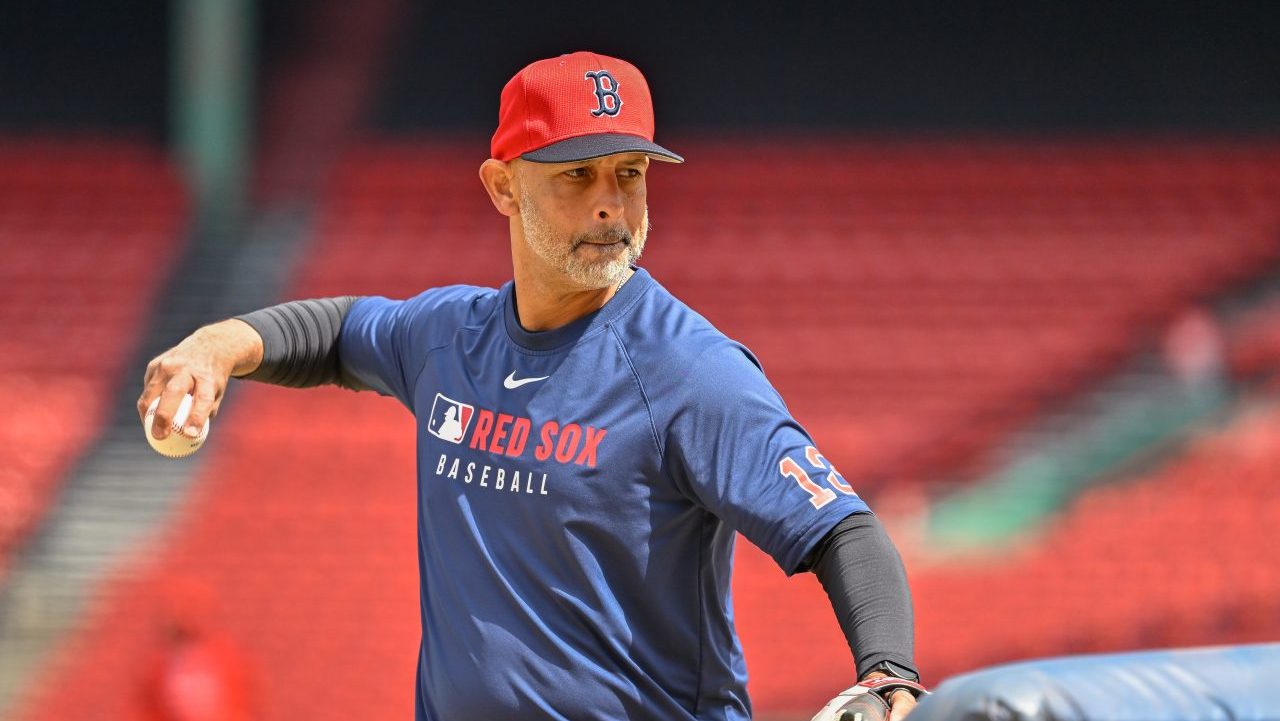Lou Merloni joins Felger & Holley on Boston Sports Tonight to talk about the future of Rafael Devers as he heads into his final year under contract
The Xander Bogaerts news dropping when it did obscured a curious Red Sox signing that has major boom-or-bust potential: Japanese outfielder Masataka Yoshida.
The Red Sox signed the 29-year-old to a five-year, $90 million deal that also required a $15.4 million posting fee.
The Red Sox consider him an on-base machine whose elite bat-to-ball skills should exploit a ban on shifts that might otherwise steal line drives to right field. Critics, conversely, see a diminutive one-dimensional singles hitter with below-average defensive skills and wonder what the Red Sox were thinking.
With our All Access Daily newsletter, stay in the game with the latest updates on your beloved Boston sports teams!
Putting aside the loss of Bogaerts, a decision clearly sanctioned by ownership, Yoshida's performance could end up serving as the true referendum on chief baseball officer Chaim Bloom, who's under incredible pressure to field a winner in 2023.
He's taking a massive gamble.
The Athletic's Keith Law didn't even have Yoshida listed among his top 50 free agents, and neither did ESPN's Kiley McDaniel, who polled a dozen scouts and execs and suspected the Red Sox might have paid Yoshida twice as much as he would've earned anywhere else. It's certainly concerning that agent Scott Boras jumped on Boston's offer rather than try to surpass it.
Boston Red Sox
Find the latest Boston Red Sox news, highlights, analysis and more with NBC Sports Boston.
The history of Japanese hitters in the big leagues is decidedly mixed. For every Ichiro Suzuki or Shohei Ohtani, there are a dozen Kaz Matsui's or Kosuke Fukudome's, highly touted imports who struggle to leave a lasting mark.
The latest example is Cubs outfielder Seiya Suzuki. The Red Sox pursued him last winter, but Chicago won the bidding with a five-year, $85 million contract. Suzuki got off to an excellent start before posting pedestrian numbers, hitting .262 with 14 homers in 111 games. He was generally considered the better player in Japan than Yoshida, and he arrived at age 27, not 29.
Tomase: Bogaerts is out the door, and Devers soon could follow
Making matters worse, the Red Sox spent more on Yoshida than the Cardinals gave former Cubs All-Star catcher Willson Contreras, who could've filled a major need. The outlay for Yoshida will also be compared to the fact that the Red Sox lost offseason target Jose Abreu to the Astros by about $20 million. And if you really want to put a fine point on it, that $105 million tops the $90 million they offered Bogaerts last spring.
Under Bloom, the Red Sox have largely eschewed such "obvious" signings in favor of diamonds in the rough like Yoshida. That's a fraught proposition in the best of times, but particularly now with Bogaerts gone, J.D. Martinez a free agent, and the lineup pretty thin beyond Rafael Devers.
On the positive side, if there's one thing pretty much everyone agrees on, it's that Yoshida will hit. He batted .326 over seven seasons in Japan, with a high of 29 homers in 2019 and at least 21 in four of the last five seasons.
He stands only 5-foot-8, but he has excellent bat control and walked almost two times more than he struck out last year. Just how completely those skills translate to the U.S. will be key to determining his value, since the Japanese leagues are considered roughly on par with Triple A.
The problem is that not everyone sees his power accompanying him stateside, especially against consistently elite velocity. Law described a hitter who chokes up to guarantee contact, "almost like he's playing pepper with the infielders," and remains skeptical that pitchers will do anything other than challenge him, especially if he proves he's no threat to leave Fenway Park's distant right field.
Tomase: Kenley Jansen signing is exactly what the Red Sox needed
Other evaluators acknowledge he's no better than an average left fielder -- and probably a little below that -- who spent two-thirds of last season at DH, so his value will be largely tied to his batting average.
Those with the rosiest view see a left-handed Dustin Pedroia, an undersized potential batting champ with the ability to barrel everything. Critics see a lesser fourth-outfielder version of Andrew Benintendi or Alex Verdugo, and the Red Sox have enough of those.
Regardless, the Sox will ask him to be an everyday player and maybe even their leadoff hitter. That's a lot to put on someone who's by no means a sure thing, and his success or failure may go a long way towards determining Bloom's future in Boston.


